Major cost influencers:
-

Battery Type & Capacity
Choosing the right battery involves considering factors like range, performance, and cost. Higher-capacity batteries offer longer range but can contribute to a higher battery pack cost.
-

Electric Motor & Drivetrain
Selecting a motor and drivetrain that align with your performance needs can enhance your driving experience, but may come with varying price points based on power and capabilities.
-

Design & Labor
Professional design and installation ensures a reliable conversion; but the level of customization, additional features, and complexity can influence labor costs.
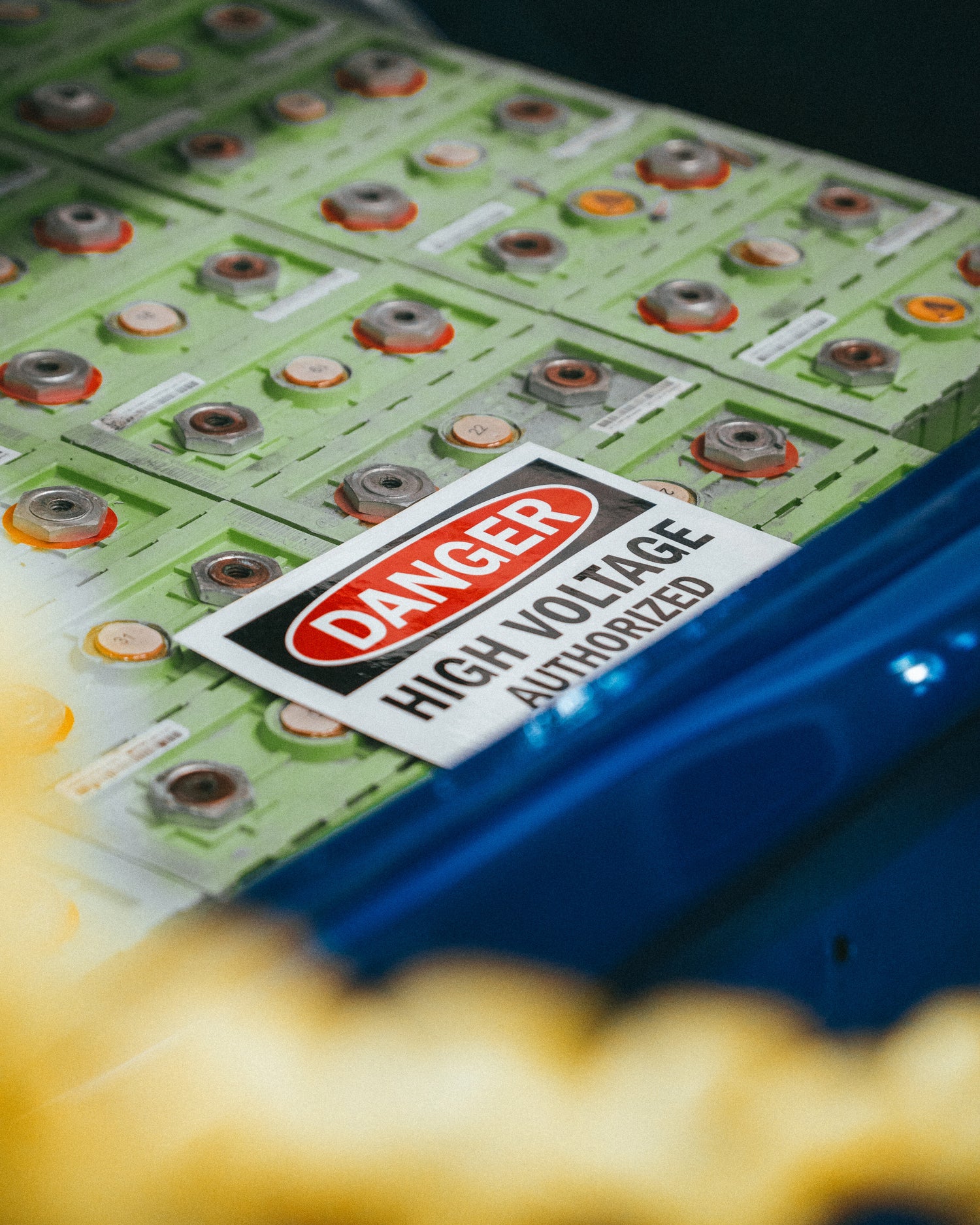
Define your goals
Mission Requirements
At the beginning of your project, we define a set of "Mission Requirements" for your build.
Mission Requirements are the cornerstone of your vehicle conversion project. They encompass your goals, desires, and intended use for the vehicle, serving as a roadmap for our team. Whether you're seeking enhanced performance, increased efficiency, or specific functionalities, Mission Requirements define what your converted vehicle will be capable of and how we'll tailor the project to meet your needs. By collaborating closely with you to understand these requirements, we ensure that the final result aligns perfectly with your vision and exceeds your expectations.
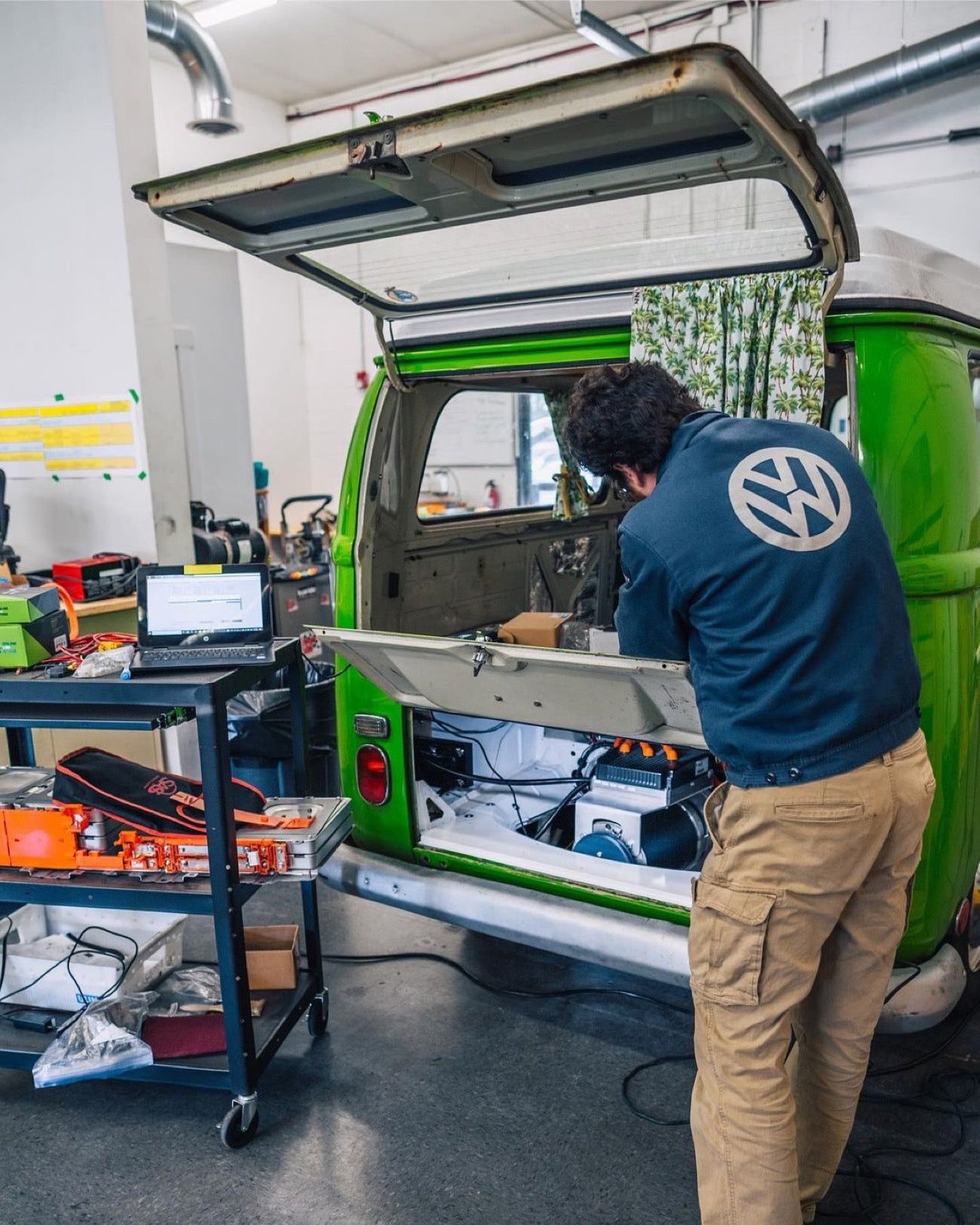
Essential items & customization
Base vs Optional Items
When pricing conversions, we separate the mission requirements into a "Base Vehicle Conversion" cost and an "Optional Items" cost.
Base Vehicle Conversion includes all essential aspects of transitioning the vehicle to an electric powertrain, ensuring functionality and safety. This is the minimum requirement to get the vehicle moving under its own electric power.
Optional Items can include creature comforts and unique features that you would like added to your vehicle. These can range from systems like air conditioning to specialized projects such as bespoke lighting and displays.
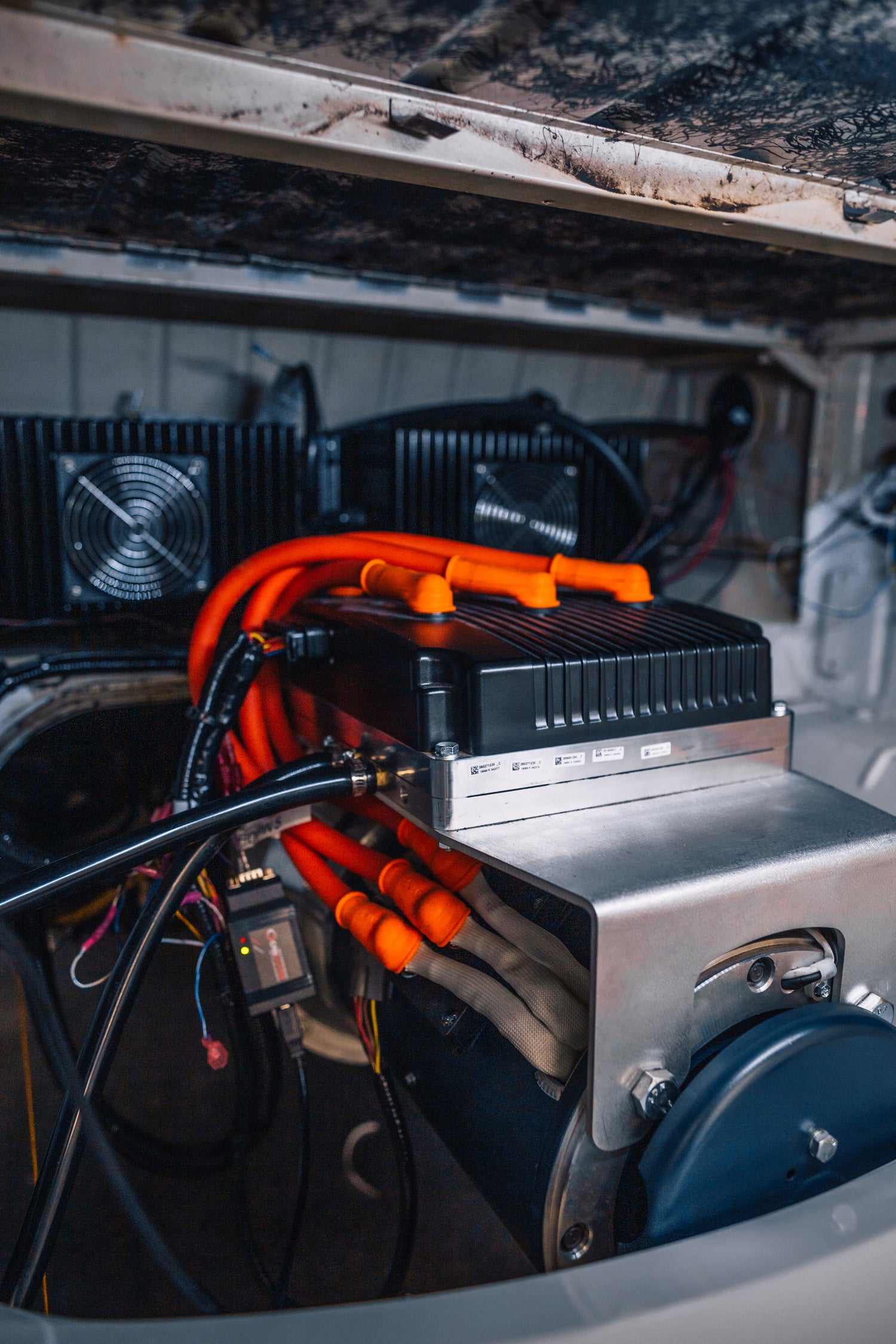
Conversion Pricing
Basic Vehicle Conversions typically start at around $70,000, assuming we have a design for your exact model.
If a design isn't available for your vehicle, extensive engineering work is needed to integrate an EV powertrain seamlessly. This involves customizing components to align with existing vehicle inputs and outputs, such as brake switches and accelerators, as well as creating custom wiring harnesses. Engineering costs for this customization usually range between $15,000 and $45,000, reflecting the labor and expertise required.
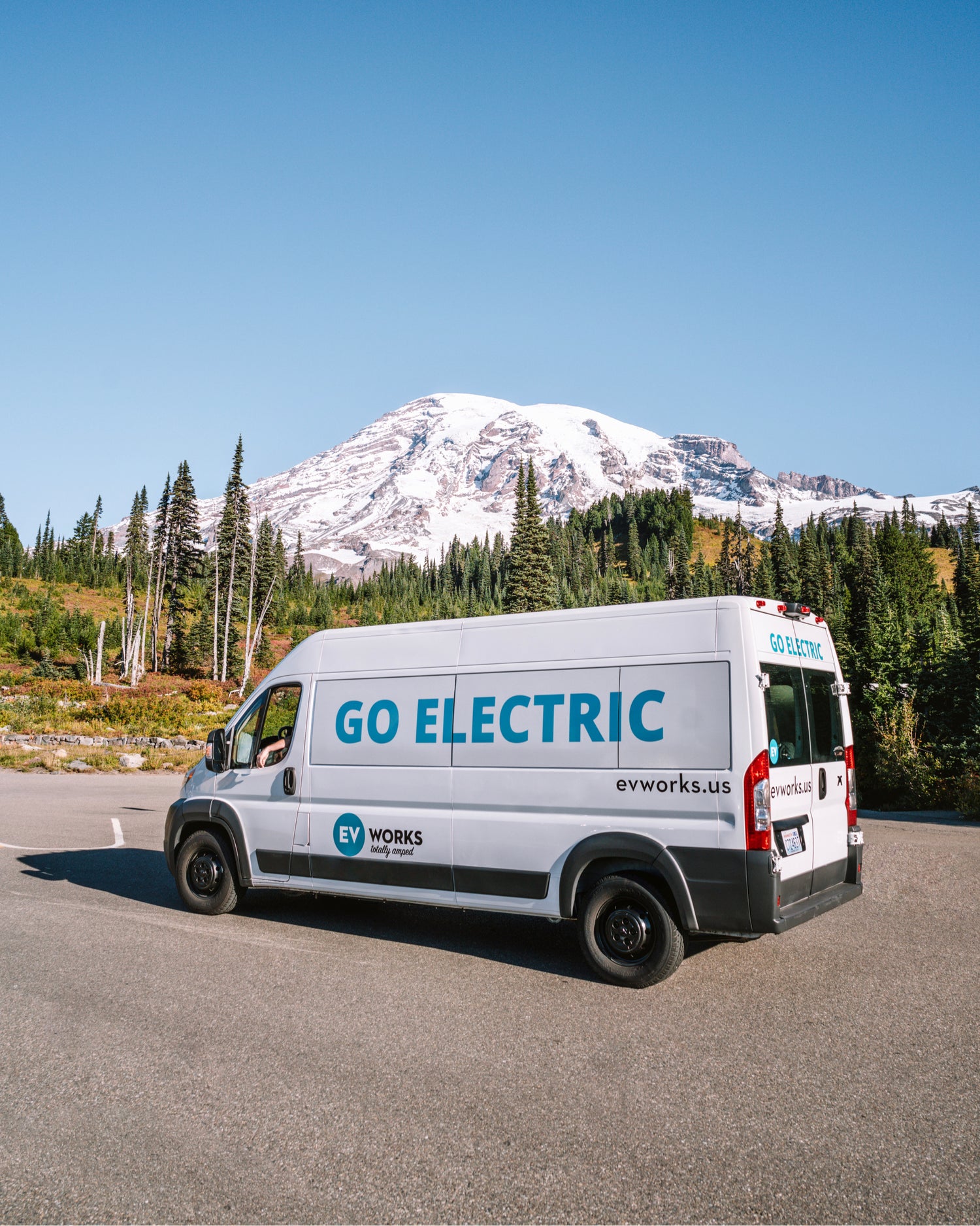
Specifications to consider
Base Vehicle Requirements
The fundamentals that we will need to know to start your design:
(If you aren't sure about any of these, we can work with you to help determine your needs)
- Desired range on the highway
- Desired combined city/highway range
- Desired top speed
- Desired motor power
- RWD, FWD, AWD
- Planned use case and operating environment (neighborhood, highway, off-road)
- Preferred charge port: J-1772, CCS, CHAdeMO, NACS (Tesla)
- When the vehicle can be delivered to our Bainbridge Island facility
- When you need the project completed
- Estimated budget
- Is there an existing EV conversion project you are hoping to model yours after?
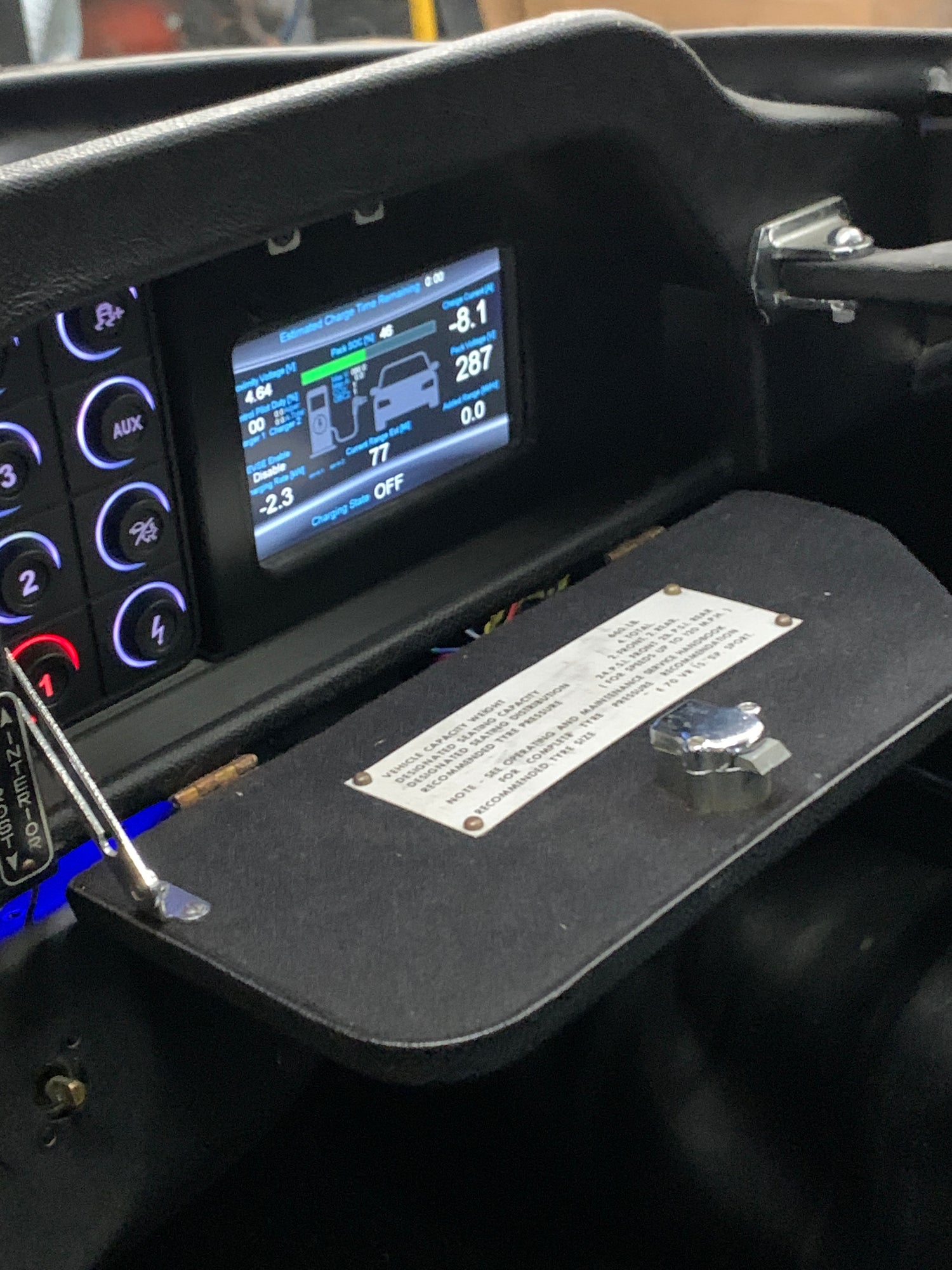
Bells & whistles
Optional items
We understand that your vehicle is an extension of your personality and lifestyle. That's why we offer a range of optional add-ons, allowing you to customize your vehicle to suit your unique preferences and needs. Whether you're looking to enhance performance, add extra functions, or introduce creature comforts; our selection of add-ons provides you with the opportunity to tailor your vehicle exactly as you envision it. Below, we'll outline some examples of these add-ons, showcasing how you can personalize your vehicle to make it truly your own.
Optional Add-Ons
Power Brakes
The power brakes option adds an electric vacuum pump to power factory vacuum-assisted brakes or switches to an electric-assisted master cylinder. This can increase braking performance and make braking easier.
Power Steering
The power steering option adds an electric power steering pump, in-line electric power steering system, or electric power steering rack. This add on can help reduce steering effort and improve steering feel.
Cabin Heating
An electric heater element or liquid heater is installed to heat the air going into the cabin. Keep yourself warm in cold weather.
Cabin AC
This option adds an electric air conditioning compressor that runs off of the high-voltage battery. Keep yourself cool in hot weather.
Battery Heater
This option adds the ability to heat the battery pack to minimize decreased range and performance in cold weather.
Most batteries need to be charged above freezing (0ºC) to avoid permanent damage. A battery heater allows the car to charge in freezing weather.
Battery Chiller
Recommended for DC fast charging and hot weather. This offers the ability to use an AC chiller to cool the battery pack if ambient temperatures are high.
DC Fast Charging
DC Fast charging is an option that can charge a car to 80% in 15-45 minutes at Chademo or CCS DC fast charging stations. In this case, the charger is built into the charging station, and it connects directly to the car's battery.
Level 2 Increased Charging Speed
Level 1 or 2 charging with the typical onboard charger we install in conversions is a 6.6kW charger, which results in about a 6-10 hour charge time when an EVSE is plugged into a 14-50 outlet.
We can increase the level 2 charging speed up to 18kW for a 3-4 hour charge. This involves installing a more powerful (or multiple) onboard charger(s).
Repurposed Factory Gauges
We can repurpose unused gauges to display EV-related information.
For example, the fuel gauge can be repurposed to show the battery's state of charge. The engine temperature gauge can be repurposed to show the electric motor or battery temperature. The tachometer can be repurposed to display the RPM of the electric motor
Digital Displays
We can add or replace gauges with a full color LCD display screen. This display screen will display any information you could want, such as estimated range, drive mode, error codes, estimated charging time left, and diagnostics.
Electric Parking Brake
New OEM electric cars often have electric parking brakes that automatically come on when the vehicle is put in park. We can install electric parking brake calipers with similar functionality to help make parking on steep hills a breeze.
Ready to get started?
We are super excited that you're here! If you're ready to get the ball rolling, please reach out to us using our contact form. Feel free to also check out some of our previous work, we take pride in our creations.



